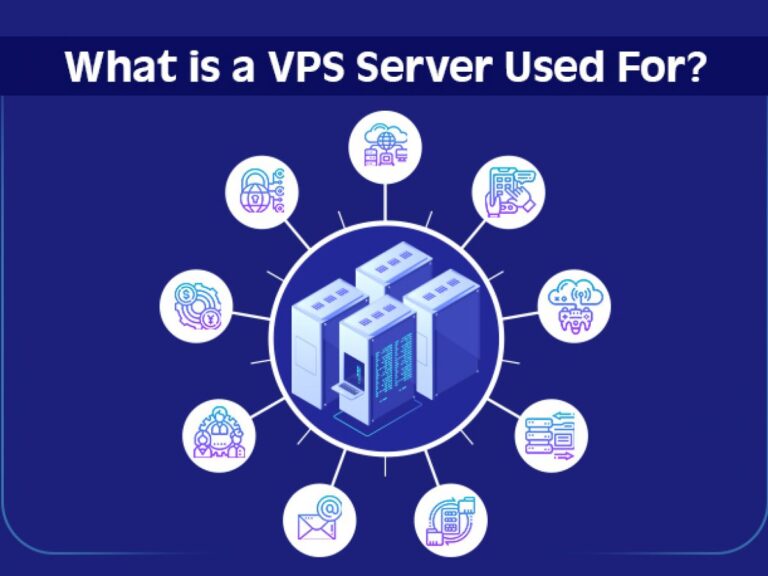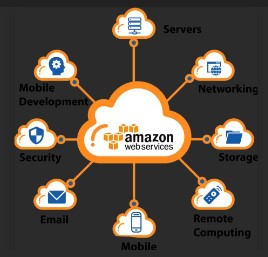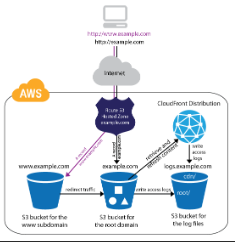Amazon Web Services For Website Hosting
In today’s digital age, selecting the right hosting provider is critical for the success and performance of websites. Among the myriad options available, Amazon Web Services (AWS) stands out as a powerhouse in the hosting landscape, offering a robust infrastructure and a comprehensive suite of services tailored to meet the diverse needs of businesses and developers alike.
Understanding Amazon Web Services (AWS)
Understanding Amazon Web Services (AWS)
Amazon Web Services (AWS) represents a cornerstone of modern cloud computing solutions, revolutionizing how businesses and developers deploy applications and manage data on a global scale.
Understanding AWS entails delving into its comprehensive suite of services, its underlying infrastructure, and the transformative impact it has had on the IT industry worldwide.
What is AWS?
AWS, an acronym for Amazon Web Services, is a subsidiary of Amazon.com that provides on-demand cloud computing platforms and APIs to individuals, companies, and governments on a metered pay-as-you-go basis.
Launched in 2006, AWS has grown exponentially to become a dominant force in the cloud computing industry, offering a diverse range of services designed to meet the varying needs of organizations across different sectors.
At its core, AWS offers a virtual computing environment known as EC2 (Elastic Compute Cloud), which allows users to run virtual machines on demand.
This service forms the backbone of many cloud-based applications and services, providing scalable computing capacity to handle everything from simple web applications to complex enterprise-level software.
Core Services Offered by AWS for Hosting Websites
AWS encompasses a vast array of services tailored specifically for hosting websites and web applications. These services are designed to provide flexibility, scalability, security, and reliability, essential for modern digital operations.
– Amazon EC2 (Elastic Compute Cloud): EC2 enables users to rent virtual servers (instances) on which they can run their applications. It offers a wide selection of instance types optimized for various use cases, such as compute-optimized instances for CPU-intensive applications or memory-optimized instances for memory-intensive workloads.
– Amazon S3 (Simple Storage Service): S3 provides scalable object storage for storing and retrieving data. It is commonly used for hosting static websites, storing backups, and serving multimedia content like images and videos. S3’s durability, availability, and security features make it a preferred choice for many web hosting scenarios.
– Amazon Route 53: Route 53 is AWS’s scalable Domain Name System (DNS) web service. It effectively routes end-user requests to internet applications by translating human-readable domain names into IP addresses. Its global network of DNS servers ensures low-latency DNS queries and high availability of domain registration and management services.
– AWS Lambda: Lambda is a serverless computing service that allows developers to run code in response to events without provisioning or managing servers. It is often used for executing backend logic, handling API requests, or processing data asynchronously, making it ideal for dynamic web applications that require scalable and cost-effective computing resources.
– AWS RDS (Relational Database Service): RDS is a managed database service that simplifies database administration tasks such as setup, scaling, and backups. It supports various database engines like MySQL, PostgreSQL, Oracle, and SQL Server, providing a reliable and scalable backend for web applications that require relational database capabilities.
– AWS CloudFront: CloudFront is a global content delivery network (CDN) service that accelerates the delivery of web content to end-users. By caching content at edge locations around the world, CloudFront reduces latency and improves website performance, particularly for users located far from the origin server.
– AWS Elastic Beanstalk: Elastic Beanstalk is an easy-to-use service for deploying and managing applications on AWS without worrying about the infrastructure. It supports multiple programming languages and frameworks, automating the deployment process and providing built-in monitoring and scaling capabilities.
These core services form the foundation of AWS’s web hosting capabilities, empowering businesses to build scalable, secure, and highly available web applications with minimal upfront investment in infrastructure.
Understanding AWS goes beyond its services; it encompasses the philosophy of cloud computing itself — agility, scalability, cost-efficiency, and innovation.
By leveraging AWS’s robust infrastructure and comprehensive service portfolio, organizations can focus more on their core business objectives while AWS manages the complexities of IT infrastructure, enabling faster time-to-market, greater flexibility, and enhanced operational efficiency in the digital era.
Core services offered by AWS for hosting websites
AWS offers core services such as Amazon EC2 for scalable computing capacity, Amazon S3 for secure and durable object storage, and Amazon Route 53 for highly available and scalable DNS.
Key Features and Benefits of AWS for Website Hosting
Scalability and elasticity of AWS infrastructure
AWS’s infrastructure allows websites to seamlessly scale up or down based on traffic demands, ensuring optimal performance without over-provisioning resources.
High availability and reliability of AWS services
With multiple Availability Zones and data centers worldwide, AWS guarantees high availability and reliability, minimizing downtime and ensuring continuous operation.
Global reach with AWS’s extensive network of data centers
AWS spans across regions globally, enabling businesses to host websites closer to their users for low-latency access and compliance with data sovereignty regulations.
Getting Started with AWS for Website Hosting
Setting Up Your AWS Account
Creating an AWS account involves straightforward steps, providing access to a range of AWS services. Verification and account setup ensure security and compliance with AWS policies.
Understanding AWS Free Tier and pricing structure
AWS Free Tier offers new users a year-long trial with limited free usage of many AWS services, making it ideal for testing and learning. Understanding AWS’s pay-as-you-go pricing structure helps manage costs effectively.
Choosing the Right AWS Services for Website Hosting
Selecting EC2 instances for web servers
Amazon EC2 provides resizable compute capacity in the cloud, allowing users to choose instance types optimized for specific workloads, such as CPU-intensive or memory-intensive applications.
Using Amazon S3 for static website hosting
Amazon S3 offers cost-effective and highly available static website hosting, with features like versioning, lifecycle policies, and global edge caching for enhanced performance.
Integrating with Amazon Route 53 for DNS management
Amazon Route 53 is a scalable DNS web service designed to route end users to internet applications. It supports domain registration, DNS routing, and health checking, ensuring reliable and efficient DNS management.
Optimizing Performance on AWS
Performance Optimization Techniques
Utilizing AWS Auto Scaling dynamically adjusts resources based on demand, optimizing performance and minimizing costs. Implementing a Content Delivery Network (CDN) with AWS CloudFront enhances website speed and reduces latency globally. Fine-tuning EC2 instances involves optimizing configurations for specific workload requirements, and maximizing efficiency and responsiveness.
Security Best Practices on AWS
Ensuring Security for Your Website
Setting up AWS IAM roles and policies establishes granular access controls, ensuring the least privilege and reducing the risk of unauthorized access.
Implementing encryption with AWS Key Management Service (KMS) safeguards data in transit and at rest, maintaining compliance with industry standards. Monitoring and logging with AWS CloudWatch provides real-time insights into website performance and security incidents, enabling proactive responses to potential threats.
Managing Resources and Costs
Cost Management Strategies
Understanding the cost implications of AWS services involves monitoring usage and leveraging AWS Cost Explorer for detailed cost analysis and optimization recommendations. Using AWS Trusted Advisor provides actionable insights to reduce costs, optimize performance, and improve security posture, ensuring efficient resource management.
Scaling Your Website with AWS
Scaling Strategies on AWS
Horizontal scaling adds more instances to distribute traffic across multiple servers, enhancing reliability and availability. Vertical scaling involves increasing the capacity of existing resources, such as upgrading to a larger instance type, to handle increased workload demands.
Implementing load balancing with AWS Elastic Load Balancing (ELB) distributes incoming traffic across multiple targets, minimizing downtime and improving fault tolerance. Database scaling options with Amazon RDS or DynamoDB provide managed database solutions that scale seamlessly with growing website demands, ensuring high performance and availability.
Deploying and Managing Applications
Deployment Methods on AWS
Using AWS Elastic Beanstalk automates the deployment and management of applications, handling capacity provisioning, load balancing, and auto-scaling.
Containerization with AWS ECS (Elastic Container Service) or EKS (Elastic Kubernetes Service) enables efficient deployment of microservices architecture, enhancing scalability and resource utilization.
DevOps practices with AWS CodePipeline and CodeDeploy automate the software release process, ensuring fast and reliable application deployments, continuous integration, and delivery.
Customer Success Stories
Real-World Examples of Websites Hosted on AWS
Case study: Company X’s migration to AWS resulted in improved scalability, performance, and cost-efficiency, supporting rapid business growth and customer satisfaction. Testimonials from businesses highlight AWS’s reliability, scalability, and comprehensive support, demonstrating its pivotal role in achieving operational excellence and competitive advantage.
Conclusion
Recap of the benefits of using AWS for website hosting
AWS offers unparalleled scalability, reliability, and security, making it the preferred choice for hosting websites of all sizes and complexities.
As AWS continues to innovate with new services and features, future trends in cloud hosting are expected to focus on enhanced automation, AI-driven optimizations, and serverless architectures, empowering businesses to innovate faster and stay ahead in a dynamic digital landscape.





